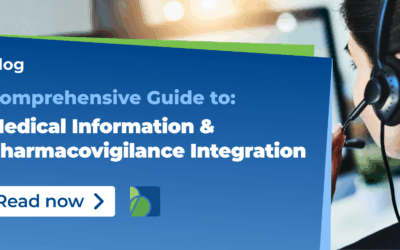Starting Strong in Complex Regions Without Delays
If you are planning to run trials in CIS or CEE, you already know the gap between signing a contract and having a site ready to recruit can be far longer than you’d like. Even with the EU Clinical Trials Regulation, you are still dealing with country-specific ethics pathways, local language requirements, and institutional contracting norms that don’t disappear just because you have a central process.
When these factors are handled from a distance, small errors can turn into weeks of delay. By embedding site startup services into a flexible FSP model, you maintain control over trial integrity while providing your team with in-country specialists who are familiar with the local terrain. That means your activation plan doesn’t just look good on paper: it holds up in reality.
Why Site Startup Services Within FSP Models Matter
Central oversight with local execution
You want protocol adherence, SOPs, and quality standards applied consistently. Local startup leads make that possible by translating those standards into documents and processes that work within each market’s rules. They know how to prepare submission packages that get accepted, navigate review cycles without rework, and adjust formats to institutional expectations, while you stay in control of the big picture.
Parallel workflows for speed
If you run startup tasks sequentially, you lose weeks you will never get back. Local specialists can push ethics submissions, regulatory filings, and contract negotiations in parallel, following the guardrails you set. That way, sites don’t end up sitting approved but inactive, and your timeline doesn’t erode one slow step at a time.
Governance and shared KPIs
You can’t improve what you can’t see. In a robust FSP structure, KPIs for submission quality, contract cycle time, and site activation are tracked uniformly across every market. That lets you spot problems early and move resources to where they’ll make the most impact, without having to rebuild your plan mid-trial.
Sponsor Questions and Direct Answers
How do you keep submissions moving across jurisdictions?
You assign a local regulatory lead to build and check each country package before submission. They manage translations, match national formats, and anticipate likely queries from ethics committees or authorities. You maintain document control and protocol alignment, but they keep the process moving forward.
How do you shorten contract timelines without scope creep?
You use negotiators who already know each institution’s norms and pain points. They can offer sponsor-approved fallback clauses without waiting for central legal to review every adjustment. That keeps negotiations within your boundaries while avoiding stalls.
How do you run submissions, ethics, and contracts in parallel without risk?
You define exactly what must be final before each activity starts, then let local teams open multiple workstreams within those limits. A live tracker shared by central and local teams keeps every dependency visible, allowing you to address risks before they become delays.
How do you ensure a clean handover from startup to monitoring?
You make the handover a required step. The startup lead documents every site-specific agreement, operational nuance, and outstanding action in a brief for the CRA. That way, the first monitoring visits focus on running the study, rather than addressing gaps left during activation
Why This Approach Works for CIS and CEE
CIS and CEE offer attractive patient populations and motivated investigators; however, the operating environment differs from that of Western Europe. Regulations are often more prescriptive, document formalities are stricter, and contracting processes are less predictable. Without experienced local leads, you risk repeated queries, extended reviews, and slow negotiations.
A flexible FSP model works here because you keep strategy, documentation, and SOPs under your control while local specialists manage the execution. Governance keeps quality consistent across countries. Resourcing can be adjusted as timelines change, without requiring renegotiation of the entire arrangement.
The result is predictability. Your startup timelines become reliable, and local challenges get handled before they threaten the broader plan. In early-phase studies, that kind of stability can protect months on your development calendar.
What You Should Focus On
If you’re integrating site startup services into an FSP framework for CIS and CEE, make these priorities non-negotiable:
- Dedicated in-country startup specialists → not rotating resources, but people committed to your study from feasibility through activation.
- Clear division of responsibilities → define exactly what stays with central teams and what local teams deliver.
- Early regulatory and ethics engagement → bring specialists in during planning, not after finalizing the protocol.
- Real-time operational visibility → one system to track submissions, contracts, and activations across all countries.
- Governance that enforces quality without slowing execution → keep oversight tight but nimble.
The KPIs You Should Watch From Day One
You can’t afford to wait for end-of-quarter reviews to see if the startup is slipping. The right KPIs provide a live view of performance and the opportunity to correct course early.
To maintain startup momentum in regions like CIS and CEE, you need more than a general sense of progress; you require measurable indicators that reveal both efficiency and potential bottlenecks. Track how often initial submission packages are accepted without any corrections. Monitor the time it takes to move a contract from the first draft to full execution. Keep an eye on the number and type of questions raised by ethics committees during review. Measure the delay between gaining approvals and enrolling your first participant. And assess how often protocol deviations occur in the first two months after activation, as these often point to issues in the transition from startup to monitoring.
- Submission completeness rate
- Contract cycle time
- Ethics query rate
- Activation lead time
- Early deviation rate
The Result?
When you make site startup a core FSP function, you move activation in CIS and CEE from unpredictable to a controlled process. Submissions get approved without repeated queries. Contracts close in weeks, not months. Parallel workflows keep progress moving. Sites start on a strong operational footing, which improves recruitment and retention.
For you as a biotech executive, this is about more than efficiency. It’s about protecting your development timeline, getting earlier access to data, and allocating resources with precision. With central control backed by local expertise, you get predictability where it matters most — and you stay focused on the science and strategy that drive value.
Talk to an expert
If your site startup timelines feel unpredictable, you may be missing the chance to spot and address local challenges early. Without a coordinated FSP structure, it’s harder to identify trends, allocate resources strategically, or build lasting site relationships across regions.
Biomapas helps sponsors maintain control with flexible FSP models that integrate site startup as a core function. You gain the visibility, consistency, and local expertise necessary to activate sites more quickly and keep your trial on track according to plan.









